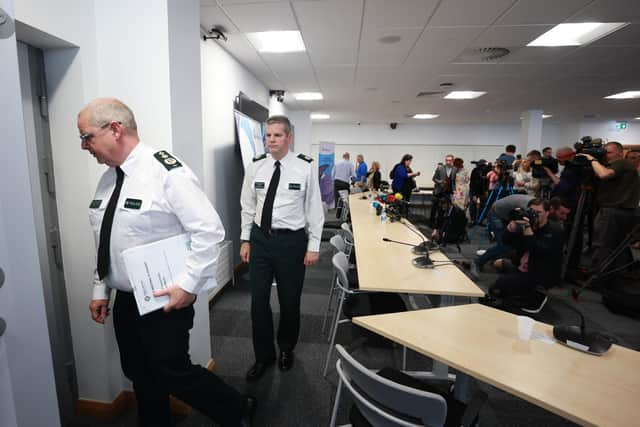Mike Nesbitt: A calamitous data breach by the PSNI which has implications for intelligence gathering and raises doubts about the safety of those named


As the Ulster Unionist representative on the Policing Board of Northern Ireland, I feel concern at the outcome of yesterday’s meeting of the Board with Chief Constable Simon Byrne and senior PSNI colleagues.
On the positive side, the PSNI talked us through how the breach occurred and the new protocols designed to ensure it does not happen again. That is reassuring up to a point, but, of course, you cannot eradicate human error, which was part of the problem. I was more concerned with the fallout of this calamitous error, focusing on the three issues of the safety of those named, the potential cost of the error, and the possible implications for intelligence gathering. Clearly, the most pressing of the three is the wellbeing of the officers and police staff.
Advertisement
Hide AdAdvertisement
Hide AdThe chief constable’s statement that dissident republicans are claiming to have at least part of the data is not unexpected. It is in their interests to spread maximum panic and anxiety within the police family and beyond. If – and I stress if – it is true then it poses a challenge to the PSNI of an unprecedented scale, given there are some 10,000 individuals on the spreadsheet.


My question to the PSNI was whether they have the resources and capacity to offer timely risk assessment to that number of people. The fact is they will have to assess and prioritise on a case by case basis, and I encourage every officer and staff member who is worried to request a risk assessment through their line manager. The question of the cost of the error is for another day, but we acknowledged the Information Commissioner has the power to impose a substantial financial penalty, and my understanding is that the General Data Protection Regulations (GDPR) affords each and every individual the statutory right to compensation.
The third area of concern is the potential impact on the PSNI’s intelligence gathering, a network I imagine the PSNI is currently plugged into to establish the extent to which the dissident republican claim has substance. Informants will not be encouraged to pass on information on the likes of dissidents or criminal gangs posing as loyalists when they see the PSNI cannot secure data concerning their own. The extent to which this is significant will need to be monitored.
Yesterday’s meeting was merely the start of a process of rebuilding, not only processes but also trust in the PSNI. Confidence has been hit badly among officers and staff, the public and some members of the Board.
Mike Nesbitt MLA, Strangford